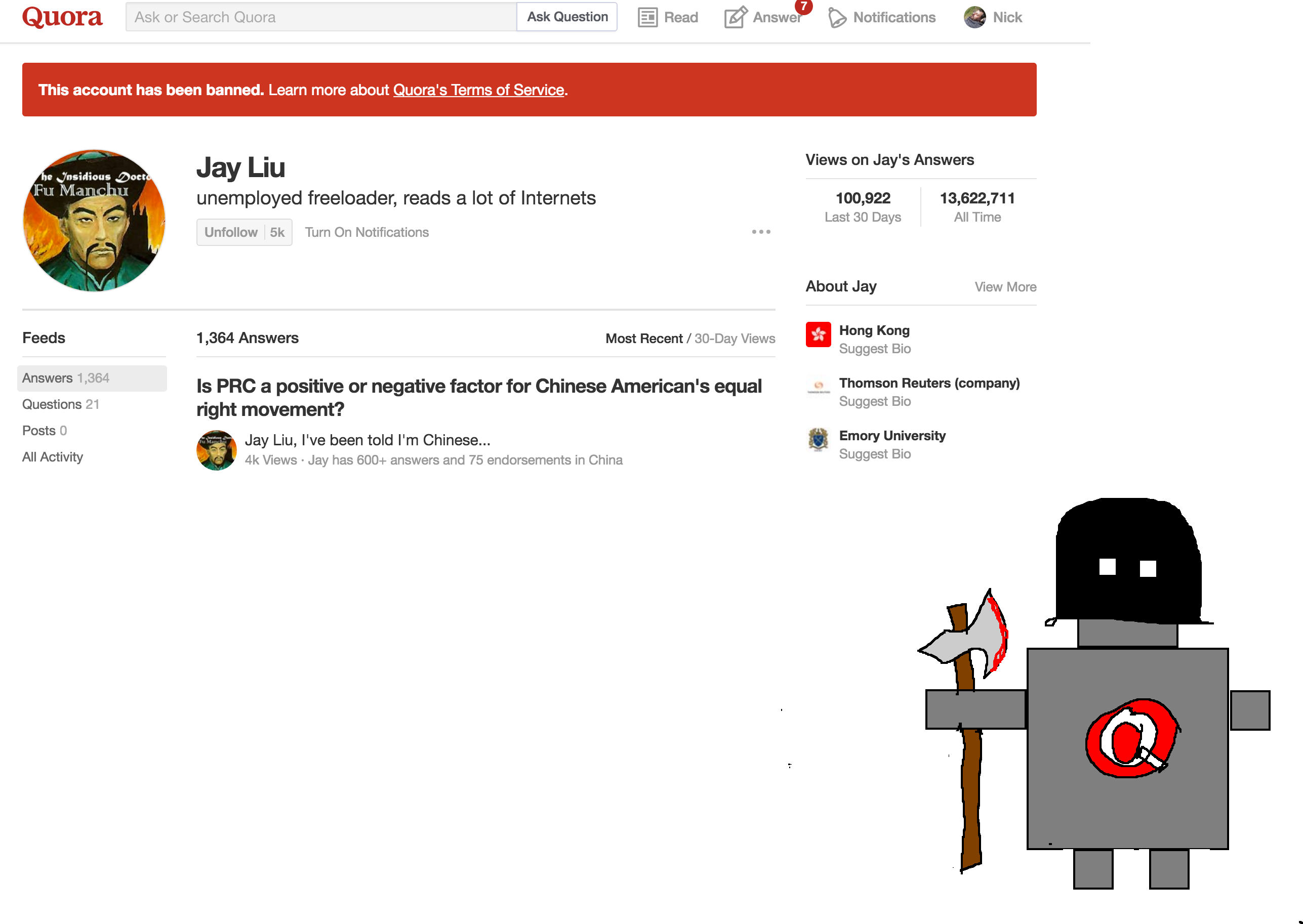Let me preface this by saying that I am a cinematic dunce.
At least, when I was a kid, Bill Collins was still presenting pre-1950 Hollywood films every Saturday night on Australian television. That was the 80s, of course. I think I got a lot more depth in my cinematic education then than the young kids today to, with the hair and the iPods and the not getting off of my lawn.
But still. Dunce. I didn’t even get who had died at the end of The Sixth Sense.
This was endlessly frustrating to my colleague in the States Nishad, who was a cinephile. He forced me to watch films, to make up for my duncehood. I thank him for making me watch The Seven Samurai.
OTOH: he also made me watch Blade Runner, and my reaction to that was, “Yeah, it’s Noir with Robots. So?”
On Mary C. Gignilliat’s mention, I’ve watched Apocalypse Now Redux. I had never watched either the original, or this edit.
Is the original Apocalypse Now, 49 minutes shorter, significantly tighter? This is a director’s cut, and it may have suffered from it. Do let me know if it has.
Thank you Mez, for reminding me I should have watched it a long time ago.
Of course, I suffer for having watched it 35 years after Nam was a live issue. (But then again, the film really isn’t about Nam at all, of course; so maybe that’s a good thing.)
I also suffer for being a cinematic dunce.
I got it. I was unsettled by it. And I’m happy I was able to put the cultural touchstones to a movie, all the quotables from Kilgore (Duvall) in particular.
I’ve got to admit: I didn’t enjoy it. Tamar kept seeing my brow furrowing.
I’m OK with it not having that much of a narrative, and with it being self-consciously trippy, even if the self-indulgence of Jimbo and the Doors gets very old very quickly. But I prefer discipline in my art, I’m more Apollo than Dionysus. I think 2001 was much more successful there than Apocalypse Now.
I’m OK with shows of cinematographic inventiveness; but again, the merge edits seem to me to have been handled more elegantly elsewhere. In fact, that was what struck me about the filming of it: it was artistic alright, but it was inelegant. Fairly obvious in its use of imagery. Unsubtle in some of its juxtapositions, such as the tape from home playing while the gunner was killed.
And it was dated. That surprised me. The mumbling narrator; the cross fades; the poring through closeups of letters; the extreme closeups of faces. Those were fads, it turned out, not building elements of film for all time.
The other surprise, for such a spawner of memes and cultural memories, was how less… monumental it was than I’d imagined. I thought there’d be a bellow or a shout behind “taste of victory” or “the horror, the horror”, I fancied that the Wagnerian choppers were going to jump out of my laptop. In actual experience, it was… subtle where I was hoping for it not to be.
The trip down through degradation of Martin Sheen was clear, once I got over my first half hour of confusion; in fact, it was pretty obvious that the actual Mistah Kurtz was going to prove a MacGuffin, and that Brando and Sheen were supposed to be the same heart of darkness ultimately, long before the Cambodian tribesmen bowed down before him. And much of it was well handled. The border bridge, the Playboy weirdness at the PABX, the shooting up of the boat with the puppy.
I think the whole Surfing Chopper thing was unbalanced though. Duvall was chewing a lot of scenery, making Sheen a bewildered bystander, in a way that really didn’t fit in with the rest of the film: his antics really were a strange entr’acte, and the parody of the military seemed forced. (Perhaps Nam really was like that, and it just seems unbelievable now. After all, I thought Nixon meeting the protesters in Oliver Stone’s film was a fabrication too.)
A grand ambitious ramshackle film. I’m glad it exists; but I thought it was let down by its ambition.
And that judgement, I guess, is why I’m a cinematic dunce. (Or why I should try again with the original edit.)
